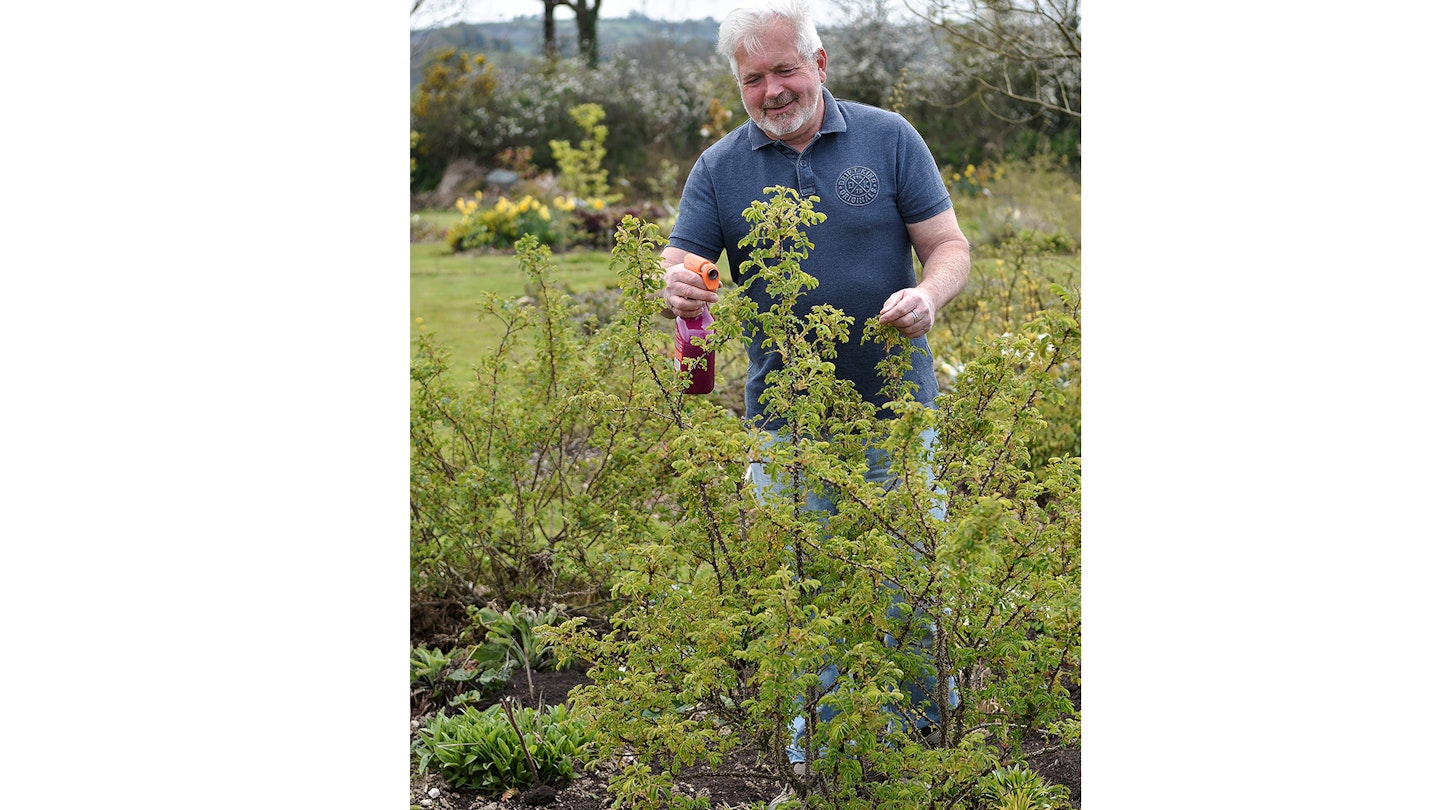Roses got off to a slow start this season, with cold and dry weather last month. This has delayed growth and, if they were pruned early, the new shoots may even have been damaged by frost. This won’t kill them but, if the shoots are badly damaged and withered, it may be worth pruning them back. This will delay flowering but all will be well later in the season.
The dry weather will also have meant that any potted roses need extra care with watering. We should never rely on rain to water plants in containers but it’s easy to be complacent. The wet winter will have washed a lot of nutrients from the compost too, so roses in pots should get extra feeding, whether with a granular rose food or a regular watering with liquid fertiliser.
Even in the open garden it’s worth watering roses, especially after applying a feed, to wash the nutrients into the soil. Feeding is very important for healthy roses, especially if the beds are mulched with a long-lasting mulch such as bark, which will remove nitrogen from the soil, leading to poor growth and bad blackspot infection.
Check roses regularly for the two most important rose problems: greenfly and blackspot. Ladybirds often clear up the greenfly, but blackspot always needs prompt action to prevent it spreading and weakening your plants.
Top tips
- If new shoots are badly damaged by late frosts it’s best to prune off the affected stems to promote new growth.
- If soil is dry and rain has been infrequent give roses a good soak. This is especially important for newly planted roses.
- Keep roses free from weeds, which will compete for moisture and nutrients. Mulch around them.
- Protect plants from blackspot by spraying as soon as you see the first signs of an infection to stop it spreading.
